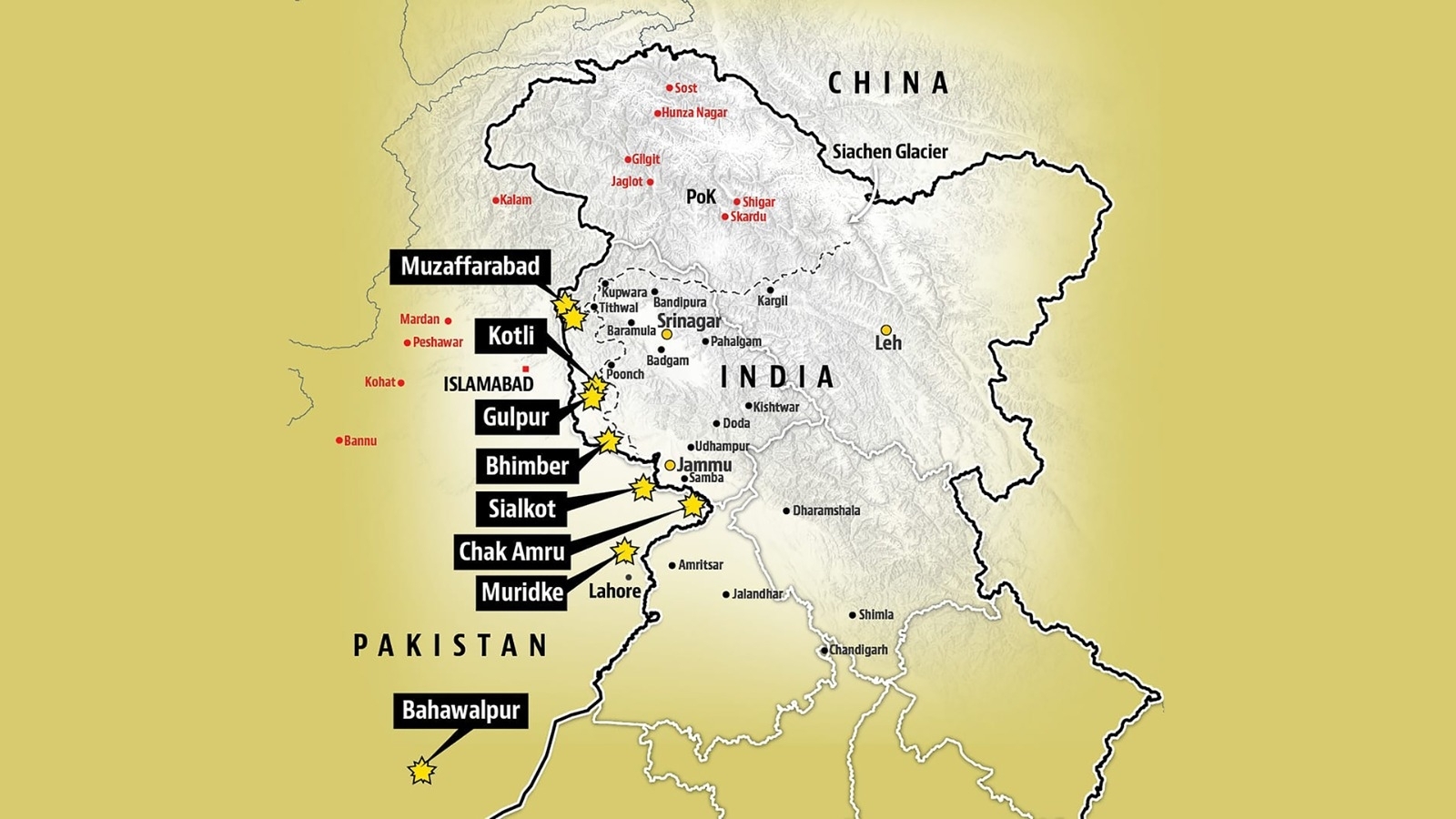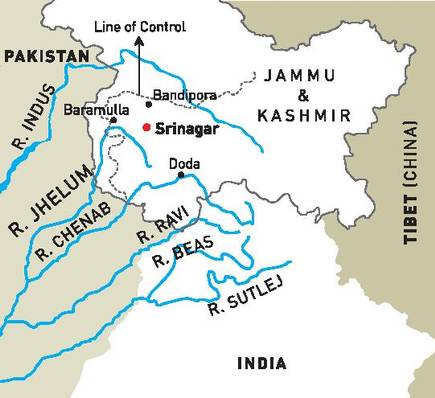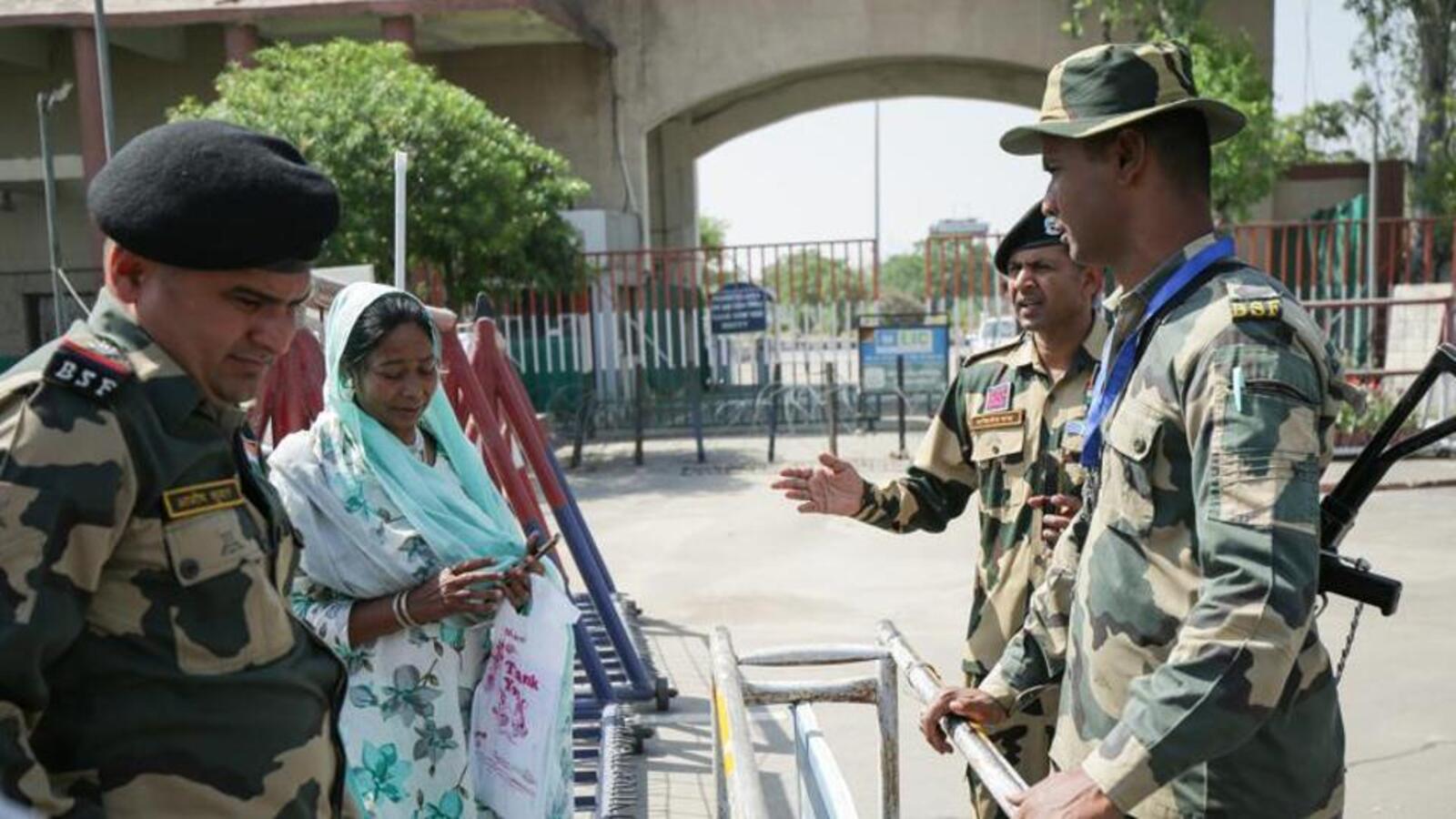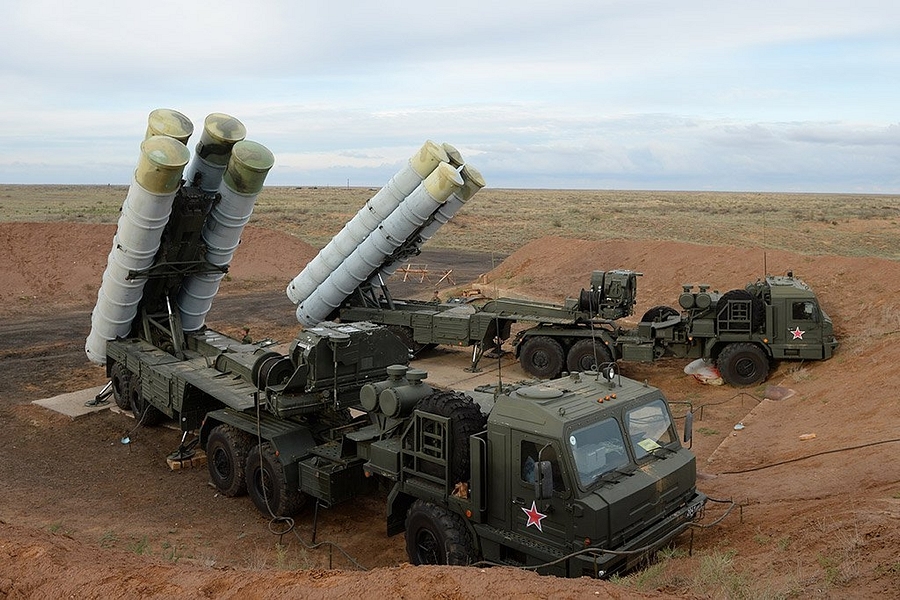

Following the tragic Pahalgam terror attack on April 22, 2025, which resulted in the deaths of 26 civilians, predominantly Indian tourists, India has undertaken a series of decisive actions against Pakistan, holding it responsible for supporting the perpetrators.
On May 6, India launched "Operation Sindoor," a series of precision missile strikes targeting nine locations in Pakistan and Pakistan-administered Kashmir. The operation aimed at dismantling infrastructure linked to terrorist groups such as Lashkar-e-Taiba and Jaish-e-Mohammed. India emphasized that the strikes were focused on terrorist facilities and avoided Pakistani military installations. Pakistan reported 31 civilian casualties, while India stated the operation was a necessary response to the Pahalgam attack.
The operation aimed to target terrorist infrastructure associated with groups like Jaish-e-Mohammed and Lashkar-e-Taiba. Over a 23-minute period, the Indian Air Force executed precision strikes on nine locations across Pakistan and Pakistan-administered Kashmir, including Bahawalpur, Muridke, and Muzaffarabad. The strikes utilized Rafale jets equipped with SCALP missiles and AASM Hammer bombs, as well as Israeli-made Harop loitering munitions.

India reported the elimination of approximately 100 militants during the operation. Pakistan, however, claimed that the strikes resulted in 31 civilian deaths and 57 injuries, including children, asserting that the targeted sites were civilian areas such as mosques and educational institutions.
India suspended the 1960 treaty, citing Pakistan's alleged support for cross-border terrorism. The IWT, brokered by the World Bank, allocated control over six rivers in the Indus basin between the two countries: India received the eastern rivers (Beas, Ravi, Sutlej), while Pakistan was granted rights over the western rivers (Indus, Jhelum, Chenab). The treaty allowed India limited use of the western rivers for non-consumptive purposes, such as hydroelectric power generation. Now India has accelerated construction on several hydroelectric projects in Jammu and Kashmir, including the Pakal Dul, Kiru, Kwar, and Ratle dams on the Chenab River. These projects, previously constrained by the treaty, are now being fast-tracked.

Further India has begun modifying water flows, notably reducing the Chenab River's flow into Pakistan. Pakistan reports a significant drop in water supply, raising concerns over agricultural and energy impacts. India has also ceased sharing crucial hydrological data with Pakistan, including information on water releases and flood forecasts, which were mandatory under the treaty.
Indian Prime Minister Narendra Modi stated, "India's water will now be conserved for internal use," signaling a shift in policy regarding shared water resources.
India halted visa services for Pakistani nationals and expelled several Pakistani diplomats. The Attari–Wagah border crossing was also closed, disrupting overland trade. Effective April 27, 2025, India revoked all previously issued visas to Pakistani nationals, encompassing categories such as tourist, business, medical, and conference visas. Pakistani nationals currently in India under these visa categories were mandated to depart the country by specific deadlines in late April.

India has suspended the processing and issuance of all new visas for Pakistani nationals until further notice. However Certain visa categories are exempt from these restrictions. Long-Term Visas (LTVs) issued to Hindu Pakistani nationals, these visas remain valid; however, holders are required to re-register through the e-FRRO portal by July 10, 2025. All medical visas issued to Pakistani nationals expired on April 29, 2025, irrespective of their original validity periods.
Permissions granted under the SAARC Visa Exemption Scheme SVES to Pakistani nationals have been canceled. Individuals under this program currently in India must leave by their visa expiration dates. India has also closed the Attari-Wagah border checkpoint, effectively halting overland travel between the two countries.
In response to escalating tensions, India suspended flight operations at over two dozen airports, including major hubs like Amritsar and Srinagar. This precautionary measure aimed to ensure civilian safety amid potential retaliatory actions.
Deployment of S-400 'Sudarshan Chakra' Systems: India has operationalized the S-400 Triumf air defense systems, known domestically as 'Sudarshan Chakra,' across strategic regions. These systems have reportedly intercepted over 80% of hostile airborne threats, including drones and missiles, enhancing India's defensive capabilities .

The Indian Army and Border Security Force (BSF) have intensified patrols and surveillance along the Line of Control (LoC) and the international border. Reports indicate that India has thwarted multiple infiltration attempts and neutralized several militants in recent operations .
Airspace Restrictions: India has closed 28 airports to commercial flights until May 10, 2025, as a precautionary measure against potential aerial threats. This has led to significant disruptions in air travel, including the cancellation of 90 flights at Delhi airport on May 8 .
Civil Defense Drills: The Ministry of Home Affairs has initiated civil defense exercises across seven states, including Jammu and Kashmir, Punjab, and Rajasthan. These drills encompass air raid warnings, blackouts, and evacuation protocols, marking the first such nationwide initiative since 1971 .
Drone and Missile Defense: India has bolstered its air defense capabilities to counter drone and missile threats. Reports indicate that India successfully intercepted multiple Pakistani drones and missiles targeting various cities .
These measures reflect India's multifaceted approach to countering threats from Pakistan, encompassing military preparedness, diplomatic initiatives, and civil defense strategies. The situation remains fluid, with ongoing developments requiring close monitoring.
Diplomatic Downsizing: India has expelled Pakistani military advisers and reduced its diplomatic staff in Islamabad. Pakistan has reciprocated by expelling Indian diplomats and suspending the 1972 Shimla Agreement .
Trade and Airspace Restrictions: India has banned imports from or via Pakistan and closed its airspace to Pakistani airlines.
On the night of May 8, 2025, India has launched an all offensive against Pakistan and precise attacks have been launched in Lahore, Karachi, Islamabad and other cities of Pakistan.
Pakistan condemned India's actions, labeling the missile strikes as an "act of war." In retaliation, Pakistan claimed to have downed several Indian fighter jets and targeted Indian military installations. Additionally, Pakistan suspended the 1972 Shimla Agreement, closed its airspace to Indian aircraft, and expelled Indian diplomats, further straining bilateral relations.
The international community has expressed deep concern over the escalating conflict between the two nuclear-armed neighbors. Calls for restraint and dialogue have been issued by global leaders, emphasizing the need to prevent further deterioration of regional stability. The situation remains fluid, with both nations on high alert. Continued vigilance and diplomatic engagement are crucial to de-escalate tensions and restore peace in the region.
Comments
Write Comment